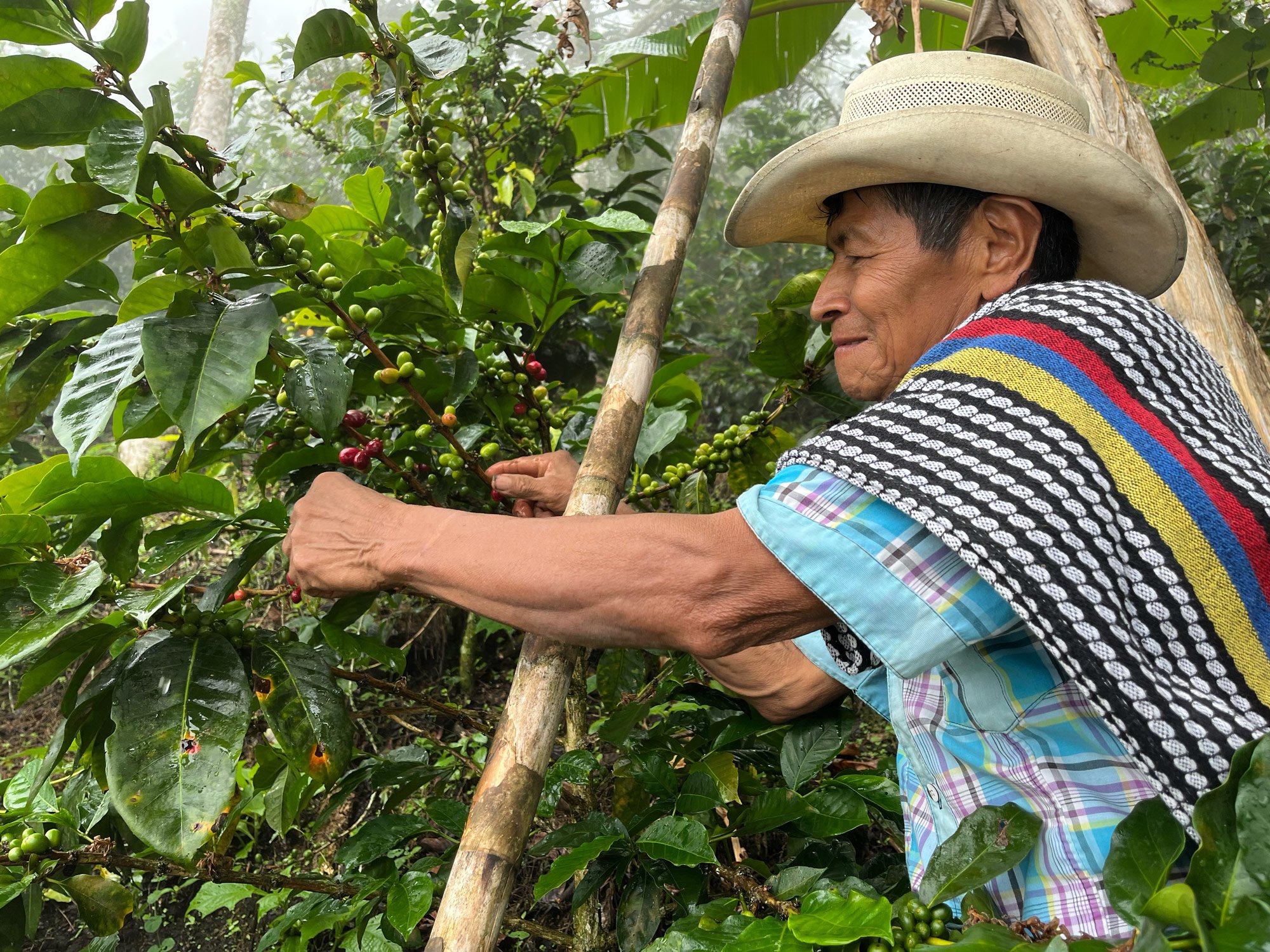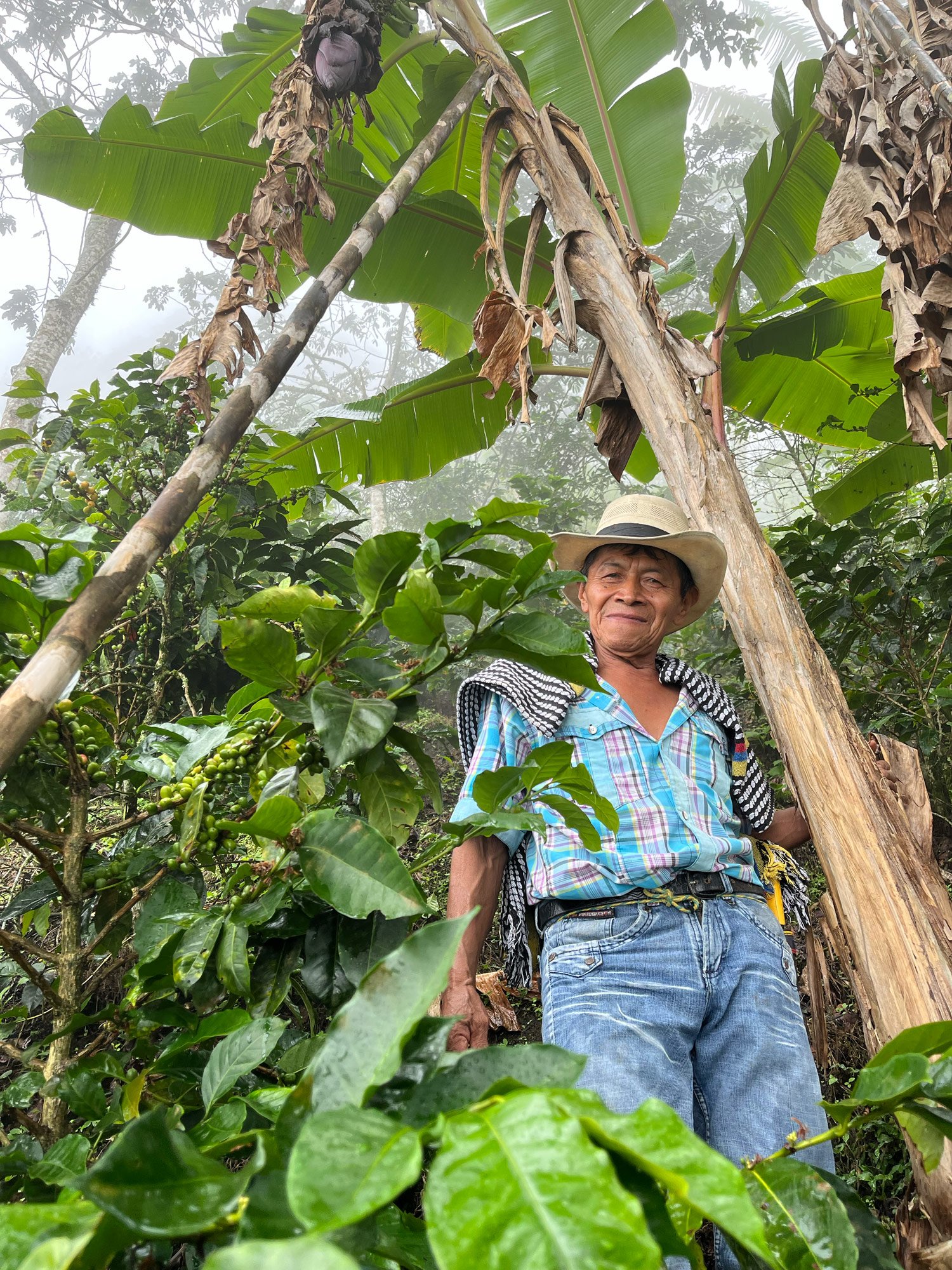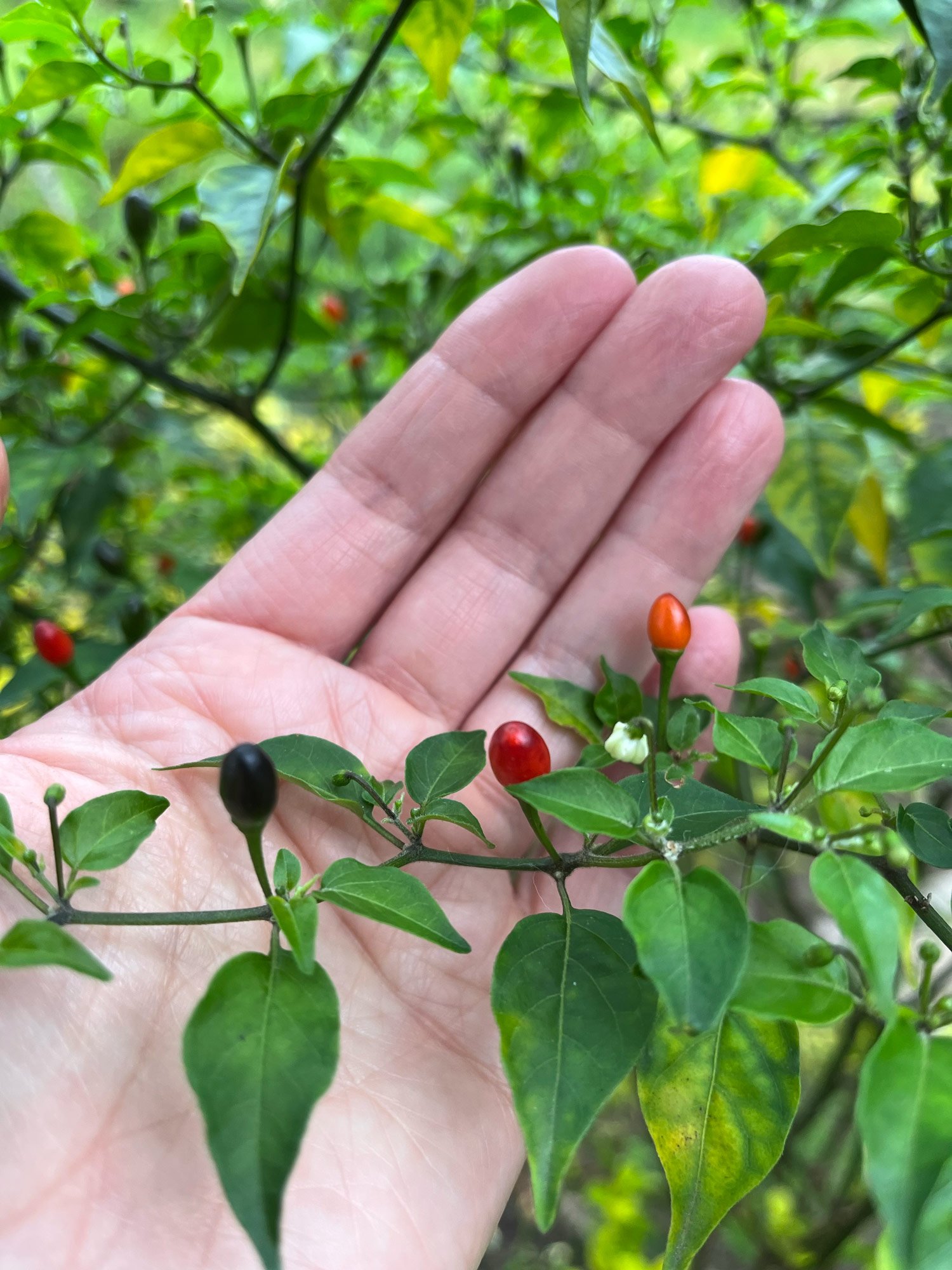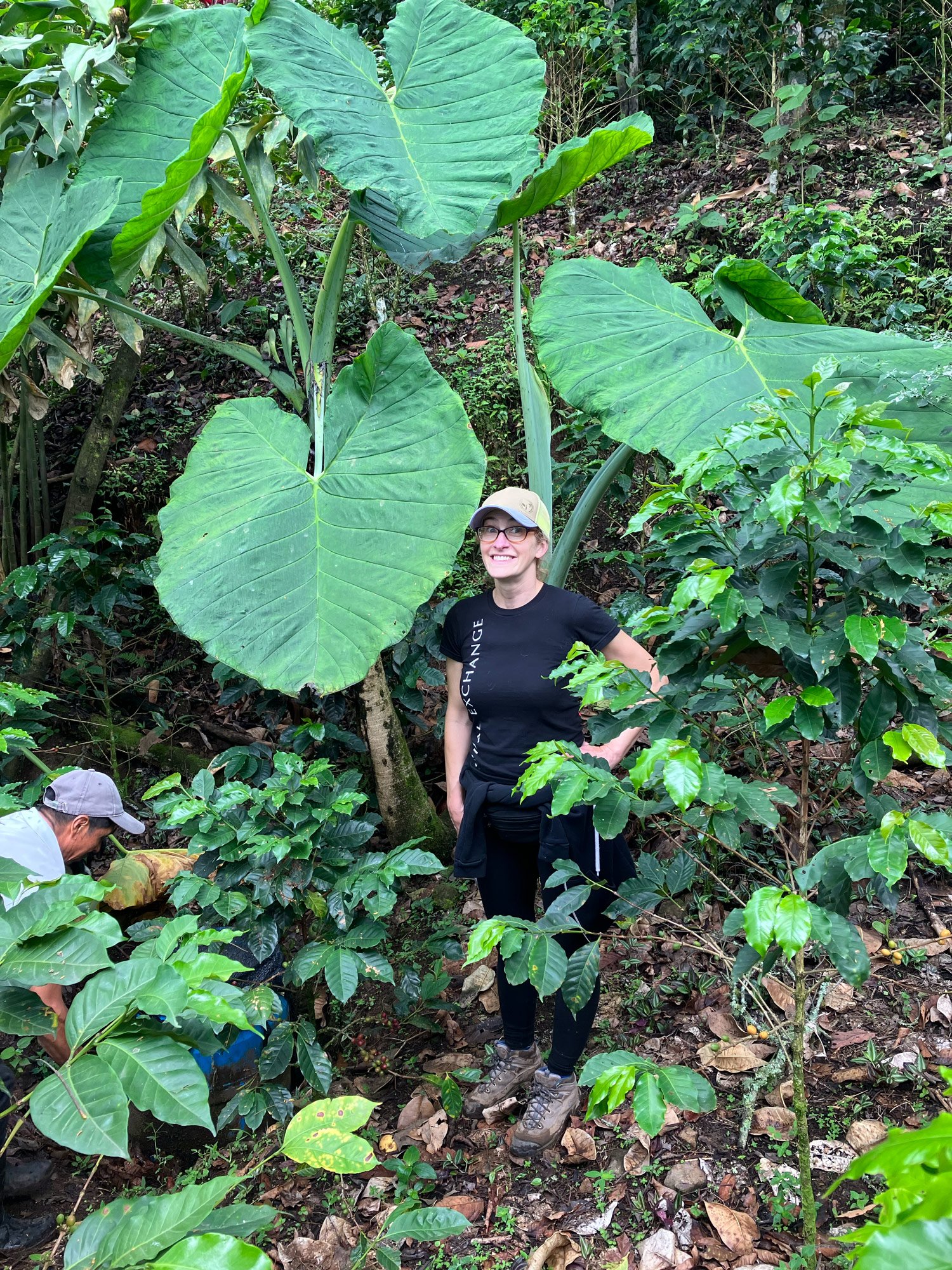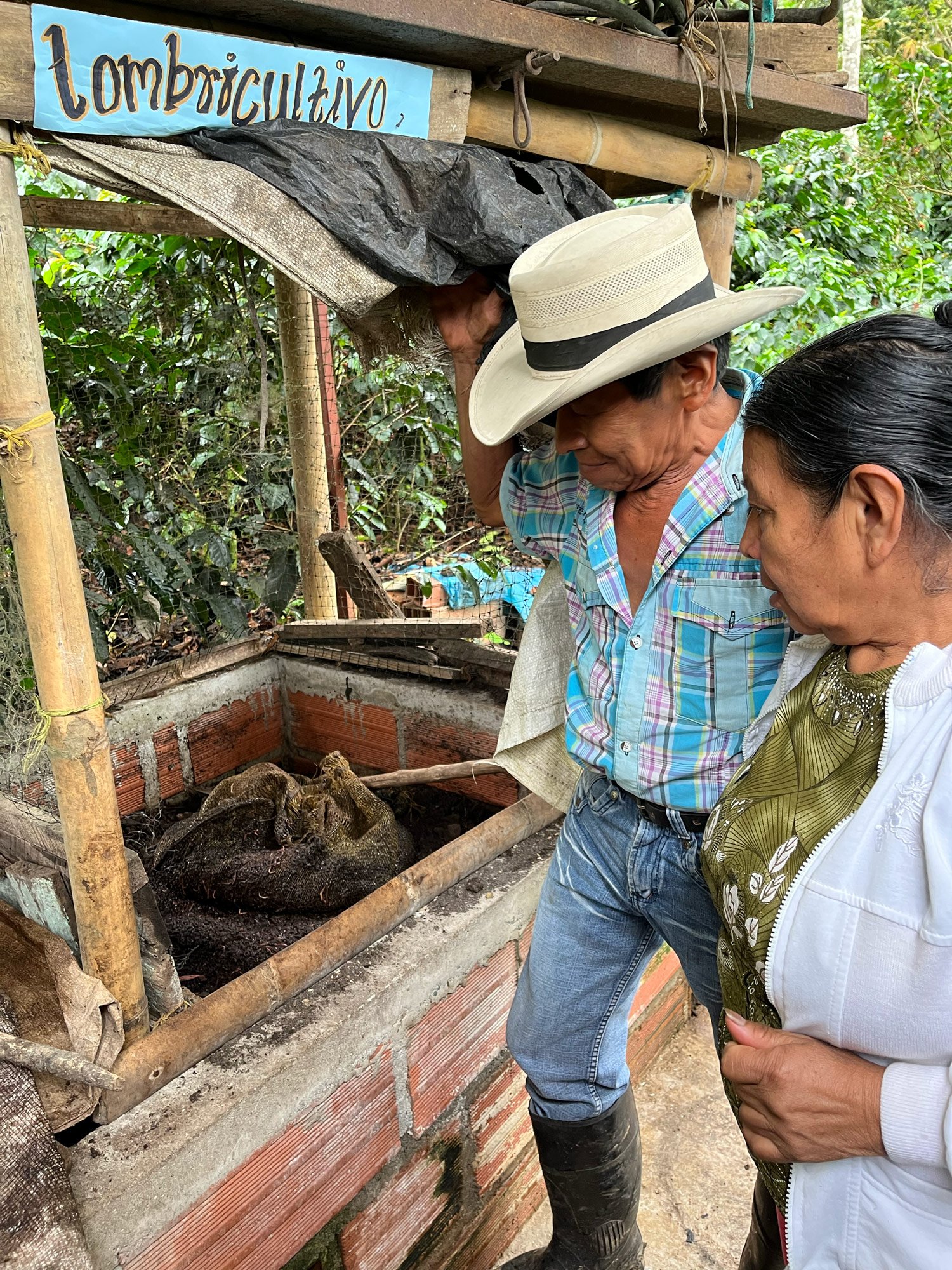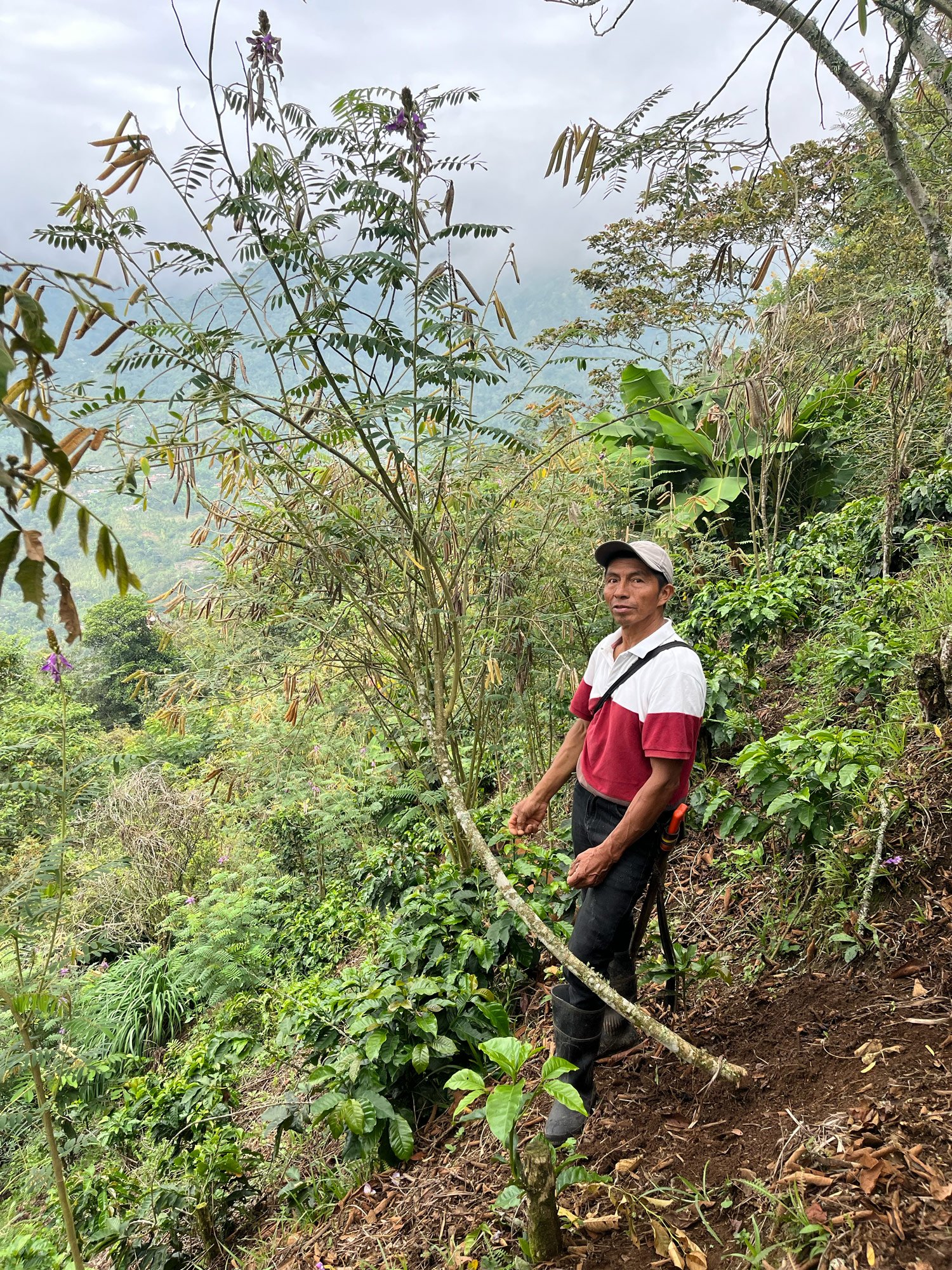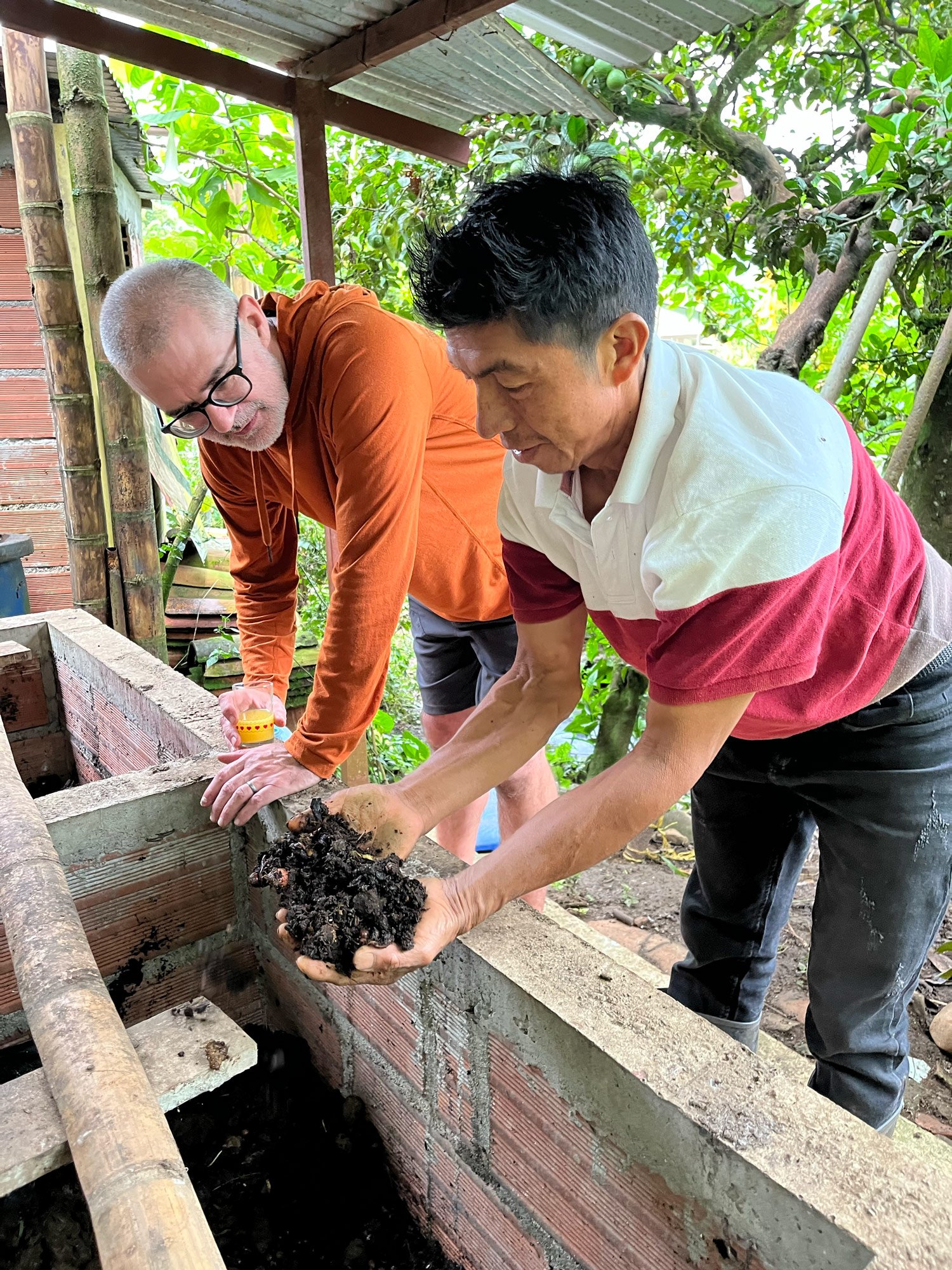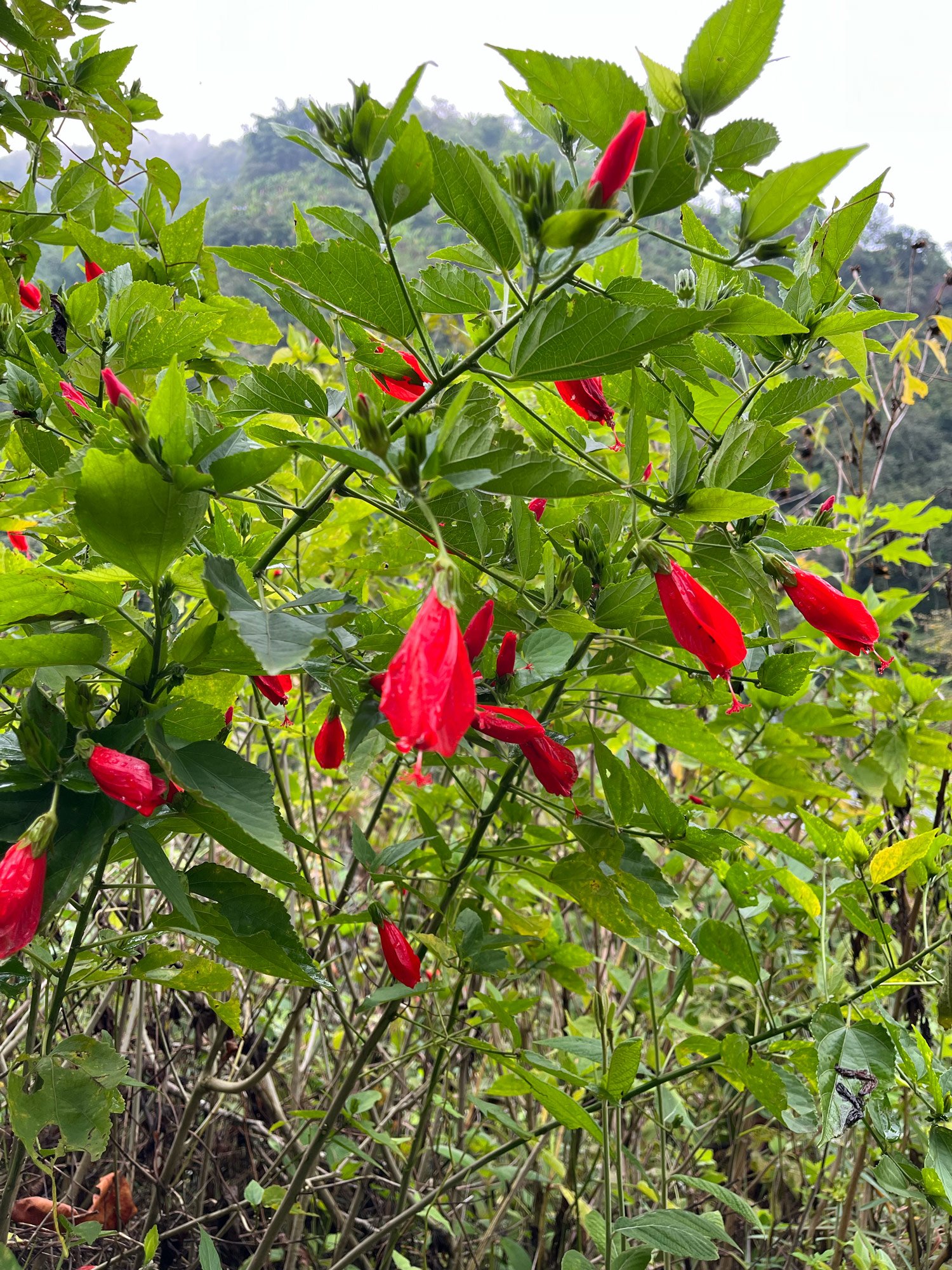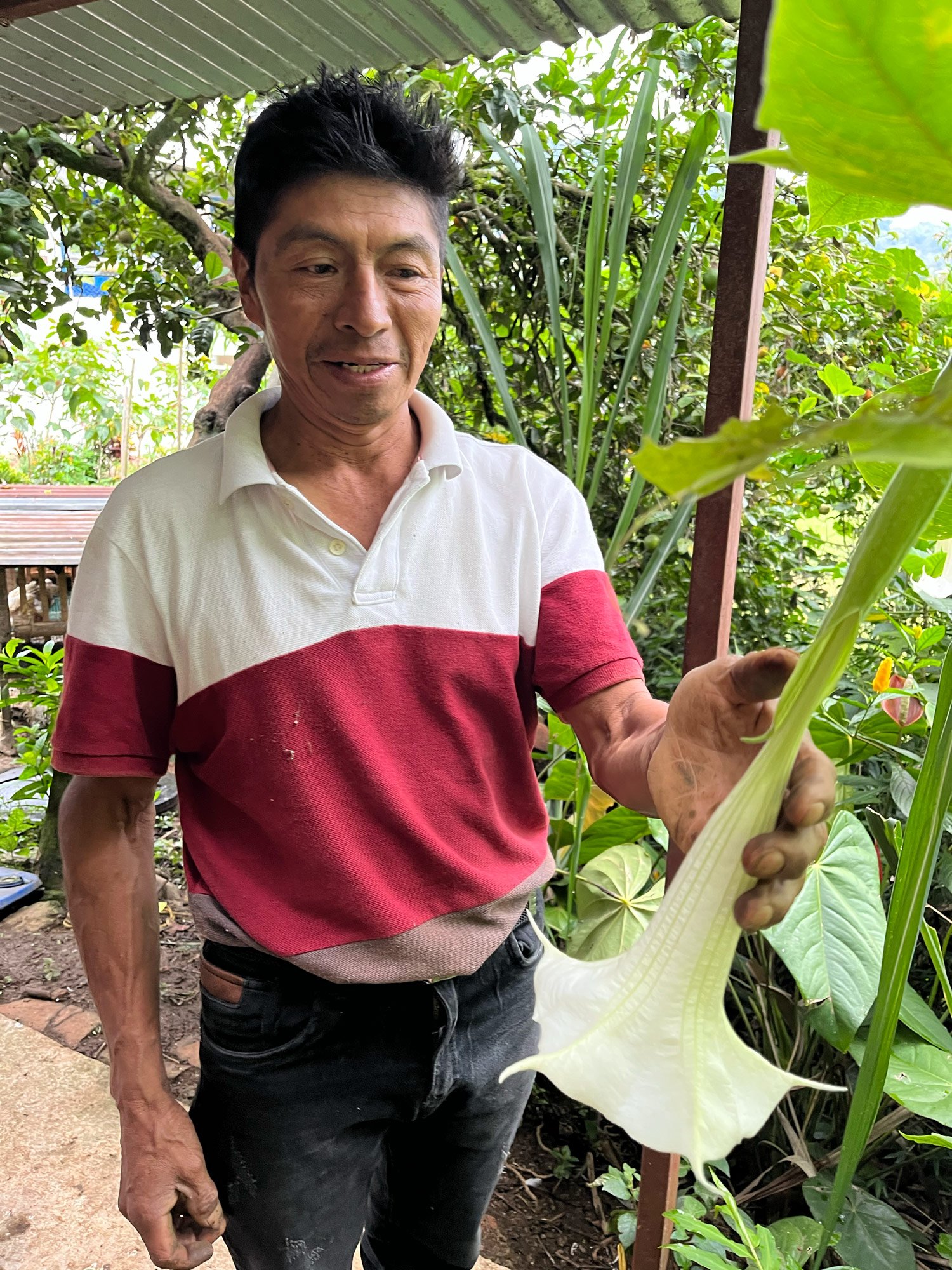Colombia Series: Snapshot of an Organic Farm
Don Luis Bueno picking coffee on his farm in Colombia
Our staff recently traveled to Colombia to visit our farmer partners there. It's a common experience: when we go to source and someone asks how the trip was, it is hard to answer. The truth is, the experience is complex. So complex that we are going to take our time to share different reflections, angles, and photos over time, to give a more complex answer. Please join us on this journey and follow our series of reflections as they unfold.
To kick off this series, Lynsey Miller reflects on her visit to the lush and abundant organic coffee farm of Don Luis Maria Bueno.
“I stood teetering on the steep slope of the coffee farm of Don Luis Maria Bueno. All my muscles were engaged to keep me upright. We were in Caldas, Colombia, in the indigenous community of San Lorenzo, high in the Andes mountains. This was the steepest-sloped coffee farm I had ever been on. I asked Don Luis how the heck he worked this steep land when I could barely stand on it. With a quick flick of his machete and a smile, he carved a shallow foothold in the soil, and I put my foot in it.”
Lynsey continues, “Once I was less focused on my balance, I could actually look around and take in the farm around me. It was like I had been swallowed up by tropical plants. There was coffee. This I had expected. I had not quite expected the rest. There were certainly plants that I couldn’t identify, but several were obvious: sugarcane, oranges, bananas and plantains. Don Luis, spying a ripe bunch of bananas hanging nearby, sliced the bunch off with his machete, and our small group had a snack. It was the freshest banana I’d ever had in my life, and that was just a casual side benefit of being on this farm, where we had come to see his coffee trees that were in full harvest, after a year of tending.
In addition to Don Luis, I was hiking with my coworker Mark Allen, a coffee roaster at Equal Exchange, and with Luz Marina Garcia Ruiz, the General Manager of the coffee farmer co-op that we buy from in Colombia, called ASPROCAFE Ingruma. Don Luis was one of the 176 farmer members of this co-op and had volunteered to take us on a tour of his farm. We met him at his home, and then set off, or should I more accurately say we set UP, as we walked more than one hour up switchback trails on the mountain to reach his farm. This was his normal commute.
Equal Exchange sells organic coffee. Particularly in Colombia, coffee is big business, and the Colombian government supports coffee in meaningful ways. However, the government's support focuses on conventional coffee, not organic coffee. In practice, this ends up producing a strong culture of conventional coffee in Colombia, but organic coffee is hard to come by. I knew those facts before finding myself in Don Luis’ company. But knowing a fact and experiencing it can be two completely different things.
I found myself reflecting upon my preconceived notions of a beautiful farm, and how the scene in front of me turned that on its head. In my mind, a beautiful farm scene was a sprawling landscape with a patchwork-quilt effect of different crops, all neatly organized into squares – a field of this next to a field of that. The farm I found myself standing in felt, in contrast, like complete chaos. This was a field of everything. And it wasn’t really a field, as I already mentioned, it was a slope. It was a slope of everything. Coffee, tubers, traditional medicinal plants, oranges, bananas, plantains, sugarcane, flowers.
It was also a manifestation of some pretty deliberate, and these days, radical choices. One was that the coffee co-op had the belief that farms should be filled with food too, not just with coffee trees. This ideology, and the Colombian climate, led to crops and food in bloom throughout the year for farmers and their family. What at first looked like agricultural chaos to me, a non-farmer, started to come into sharper and sharper focus as a thoughtful strategy. Don Luis’ farm was beautiful. And very productive.
Another choice that Don Luis’ farm modeled was the choice to be organic. When someone asks me what “organic coffee” means, sometimes I give the shortest, simplest answer I can think of: “coffee grown without using harmful chemicals and pesticides.” That definition can be an accurate representation of some organic coffees. But the truth is that there is a wide spectrum of what organic can mean, in general, and in coffee specifically. And standing in this farm, I was bearing witness to the other end of the organic spectrum, the one that wasn’t short and simple, but instead rooted in complexity, thoughtfulness, and commitment to an ethos that was creatively using natural inputs and techniques to manage the farm as a comprehensive system.
I want to share some of the strategies, tools and smarts that Don Luis and his co-op peers used that brought this organic philosophy to life, literally.
Shade produced by taller fruit trees also creates a growing environment that supports high quality coffee, allowing the sugars in the coffee cherries to develop slowly
Tall, hardy, obstructive plants are used along the borders of the organic plots, to create protective boundaries from chemicals that neighboring farms might use – this helps protect organic farmers from losing organic certification from chemical drift
Specific plants have scents that are off-putting to certain coffee insect pests, and these plants are strategically incorporated into the farm as pest control techniques, instead of spraying chemical deterrents
Specific nitrogen-fixing plants are included in the farm to help reincorporate this necessary element back into the soil, naturally
Compost systems, both the more standard style as well as vermiculture (worm composting) systems are used to turn farm, processing, and home organic matter back to soil-enriching compost that is reapplied to the farm
Flowering plants and hives make welcoming habitats for pollinators
Below ground, the root systems of these various plants and trees help keep the rich topsoil in place on these steep slopes that might otherwise be vulnerable to erosion
As Luz Marina said several times during our week in Colombia, the organic farmers at ASPROCAFE Ingruma farm in this way out of a deep commitment to organic as the right philosophy for quality coffee, for the earth and for their values. It was an honor to get to challenge my own assumptions and learn that the apparent chaos of the farm was the complete opposite, and was in fact this deep organic philosophy manifested.”
Follow our stories and reflections as they unfold: Colombia Series >
Interested in sharing this story with others?


